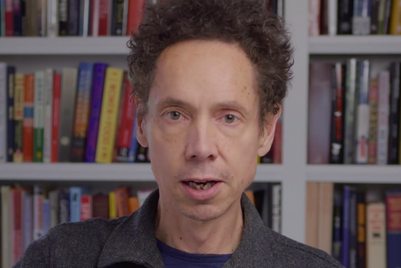
Steve Ray, an American football quarterback turned “private equity guy”, didn’t hold back on the topic of predictive analytics.
“There’s this analytics dude running around pitching to sports teams and trying to take your blood to predict if you’re a superior athlete. I don’t like that. What if he told me that when I was ten?” said Ray. “I think I turned out alright. I love predictive tech but I don’t want to be trapped by it. I’d rather be out there and find out how good I am.”

This contrasted with data expert and author Nate Silver’s take on things, whose data work spans sports, politics and marketing. “The best teams in the NBA are analytically driven. Now we can measure things, we thought were in the area of ‘scouting’. We can see who is really performing well and break it down into categories like offense and defense using motion tracking tools.”
“Carmelo Anthony is pretty lazy. He’s way behind the NBA average for the distance a basketball player runs in a game,” he added.
Despite the varying views, Adobe, like much of the tech industry, is drawing on the idea of change and that “nothing is impossible”. It is this persona of the pioneer that has the upper hand in any discussion.

John Mellor, VP of strategy at Adobe, opened his session with an Adobe study on marketer sentiment in 2015, highlighting that marketers feel “excited, optimistic and encouraged” about the prospects of digital marketing.
“It’s easy to talk about the ambition of delivering consistency in digital but being a change agent requires risk taking,” said Mellor. “Imagine you're looking up at a 3,000-foot rock wall. How would you make the impossible possible?”
It was on this line of rhetoric that free climbers Tommy Caldwell and Kevin Jorgeson stepped onto stage. Having recently free climbed the Dawn Wall of El Capitan—a feat that took seven years pf preparation—the pair shared their experience with the audience.
Caldwell and Jorgeson had abseiled "down the rock wall over the years to map out where the holds were going to be from bottom to top” and carefully planned the “logistics of food and living on the walls for prolonged periods”.
“Ultimately we had to let go of our own disbelief and commit,” said Caldwell, recalling a time he was stuck on a section for eight days because he saw a hold but needed to leap to get to it while waiting for his cut fingers to heal.
“Optimism is important, but resolve is what you need to see it through,” he added. “Ignore the fact that you can be on the ground in 15 minutes.”
The rock wall metaphor set the tone for the rest of the keynote as Todd Kopeland, general manager at National Australia Bank and Rob Roy, group VP, e-commerce and interactive marketing at Time Warner, discussed the challenge of getting their organisations agile.

“NAB was founded in 1858, we have 43000 people and 13 million customers and yet 90 per cent of interaction happens online and 65 per cent is on mobile,” said Kopeland.
Using words like “agile” and “sprint” during his speech—both of which are tech product management terms—it was obvious how digital has continued to impact traditional and slower moving industries such as banking, even at the upper management level.
Roy elaborated that organisations need "generalists" and “people who understand the business and the specific area they work in” be it in data science or another digital specialty. “That makes more well rounded people,” he added, adhering to a “mindset over skill-set” first approach.
Keaton’s appearance at the keynote saw the actor describe his career and the mental processes and the strategic thinking he applies to his work—a mark of any successful person. He also shared his own perspective on digital media and marketing.

“I always thought that one day some people would be able to make a really good movie on a phone,” said Keaton on the democratisation of devices and creative technology. “I’m an Instagrammer because I find it fascinating to see peoples' behaviour and the way they see the world.”
But Keaton also sees a downside to the proliferation, especially around data and information. “When you start looking at how much people are worth on a wealth index and start comparing, that just drives me fucking crazy,” he said. "I never want to be at the whim of other people. I want to be the whim-maker—the Whim-ster. Well, there's a new number plate."




.jpg&h=334&w=500&q=100&v=20250320&c=1)

.jpg&h=334&w=500&q=100&v=20250320&c=1)


.jpg&h=334&w=500&q=100&v=20250320&c=1)

.png&h=334&w=500&q=100&v=20250320&c=1)







